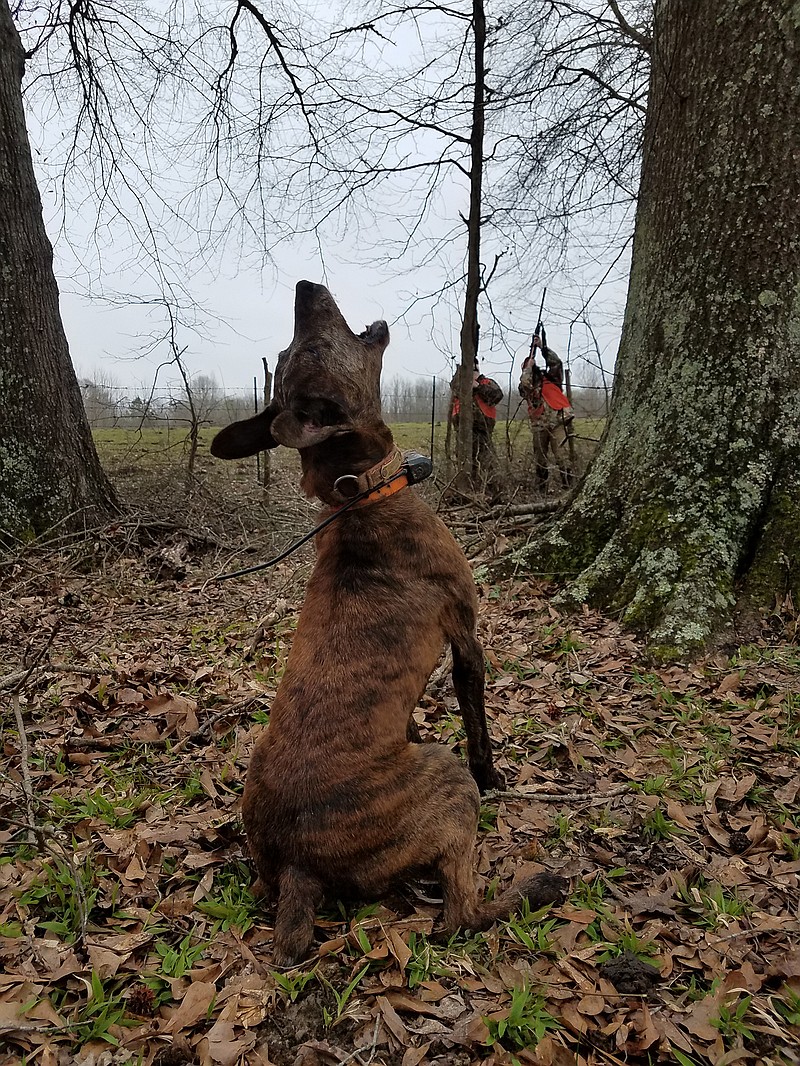Is there a squirrel dog in your future? For your sake, I hope so.
Although squirrel dogs have become more popular in the past several years, it's not like there is one in every backyard, which is a shame. Usually when I get to talking about this, someone who doesn't know about squirrel dogs will say something along the lines of "Why do you need a dog to hunt squirrels?"
Well, the squirrel dog guys out there know that you could go on and on about this - how a good dog can track and find squirrels when you can't; how really good dogs can find them even when the squirrel hasn't been on the ground for a while; how they can smell them, "wind' a squirrel high in a tree and tell you it's there!
But you know the real reason why you need a dog to squirrel hunt? Because it is fun!
Unless you're familiar with this time-honored practice of taking bushytails, you may question the need for canine help in acquiring the makings for squirrel gravy and biscuits. Many hunters can take their limit of squirrels by still-hunting and spot-and-stalk pursuit. Once you have hunted with a good squirrel dog, though, you may never be the same.
While it's true many dogs of mixed ancestry have made great squirrel-getters, most squirrel dogs today fall into two groups: curs and feists. Both of these breeds have their origin in the southern portion of the Appalachian Mountains; both of them have a loyal following.
The feist is the smaller of these two dogs, averaging less than 18 inches at the shoulder and weighing no more than 30 pounds. So if size is a big factor for you in picking a squirrel dog, you may want to go with the smaller feist. Curs can vary widely in height and weight, everything from maximum feist size all the way to a 50-pound dog.
The two breeds basically hunt the same, with the cur generally having more range than a feist. This means a cur is hunting farther away from you than a feist, and all of this is based on your own preferences and where you hunt. Flat ground makes it easier to hunt with a dog that ventures out a little farther. A wide-ranging dog in mountainous country is often considered a young man's game.
I personally want a dog that uses his nose as well as eyes and ears, and the cur is known for usually having more nose power than a feist. I have also seen some feists that are wicked good squirrel dogs and have great noses. It is an argument older than the Ford versus Chevy debate: Feist guys are going to steer you toward their dogs and cur fans towards theirs.
Take your time, shop around and see what suits you best.
If you want something different from a cur or feist, there are several options available to you. As noted earlier, there have been many good squirrel dogs that are really just mutts. Some hunters will routinely cross their dogs with bird dogs, usually a pointer. The Norwegian elkhound often makes an excellent squirrel dog.
Look for a breeder who uses his dogs to hunt, more so than just for pets or show.
As in choosing any hunting dog, you want to do your homework and talk to as many breeders and owners as possible. Ask specific questions of the breeder and tell him exactly what you expect a dog to reasonably do. You may want to look at a young dog that has already been started in training. Many times this is a good option because you can bypass the destructive puppy stage and know you have a candidate that is already treeing squirrels.
Remember that whatever you choose for your squirrel dog, nothing will take the place of time spent in the woods. Experienced hunters will tell you to put your dog around squirrels and "hunt the fur off of them." You may notice a young dog that has what it takes getting a little better every time you go to the woods, but he can't do that if you don't go.
In essence, what a good squirrel dog does for you is find the game. He will range ahead in the woods, find the track of a squirrel, put it to a tree and then bark "on tree" until you arrive. Unless you think your nose, eyes and ears are as good as most canines, a trusty dog will find more squirrels than you will on your own.
There may be no better way to introduce youngsters to hunting. Kids love to watch the antics of the dogs as they scramble through the woods, and once the squirrel is treed, taking the shot can be relaxed and stress free. A cur or a feist can make a great buddy dog for a kid that loves to hunt.
The next time you seek the main ingredient for squirrel gravy and biscuits, try a little canine assistance with that squirrel dog in your future.
"The Trail Less Traveled" is written by Larry Case, who lives in Fayette County, W.Va. You can write to him at larryocase3@gmail.com.
